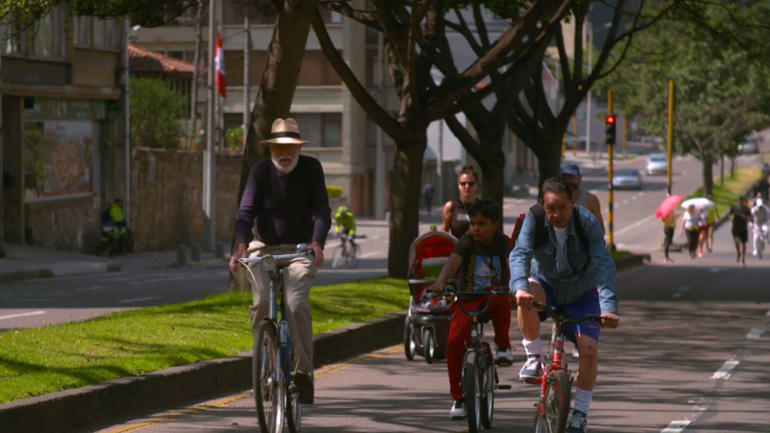Every Sunday, Bogota’s main highways and streets are taken over by cyclists and it has been this way since 1974.
A law was signed two-years later, and more than 100-kilometers of highway is closed for cyclists. These roads are also where those from all walks of life come together. CGTN’s Michelle Begue reports.
In 1974 a group of Colombian citizens proposed to close down 12 km of public roads in the capital for three hours so that bikes could freely roam. One of those citizens, architect and activist Jaime Ortiz, says he knew it would be well-received.
“The bicycling culture wasn’t new,” Ortiz said. “For more than a century our urban and rural culture has had the bicycle as part of their identity. So, we knew that in every home there was a bike parked.”
After two years the Bogota mayor signed a decree that made the Ciclovia, which means “bike path” in Spanish, official. Every Sunday and national holiday – from 7 am to 2 pm – more than 120 kilometers of highways turn into a cycle lane.
Ciclovias have now been replicated in hundreds of cities around the world, but nowhere is there so much pride connected to an urban bike path as in its native city.
“It became a space where families could share time together, rest, and enjoy this beautiful city that we have,” said Jose Andres Cabrera, a resident in Bogota. “For example we are out with my son and his friends and we always either bike, jog or walk.”
According to officials, between 600 thousand to 1.4 million citizens participate every Sunday and the greatest achievement for Ortiz was creating a public space where all Colombian citizens, despite different economic and social backgrounds, could share their love of cycling.
“This created a generation of Bogota citizens that could see themselves differently,” Ortiz said. “Not in a car or a bus. And now they can strengthen the debate of how cities should be in the future.”
Since 2001 more than 200 cities have referenced Bogota’s ciclovia to implement similar programs and an estimated 93% of regular street closure events occur in Latin American countries.
 CGTN America
CGTN America

